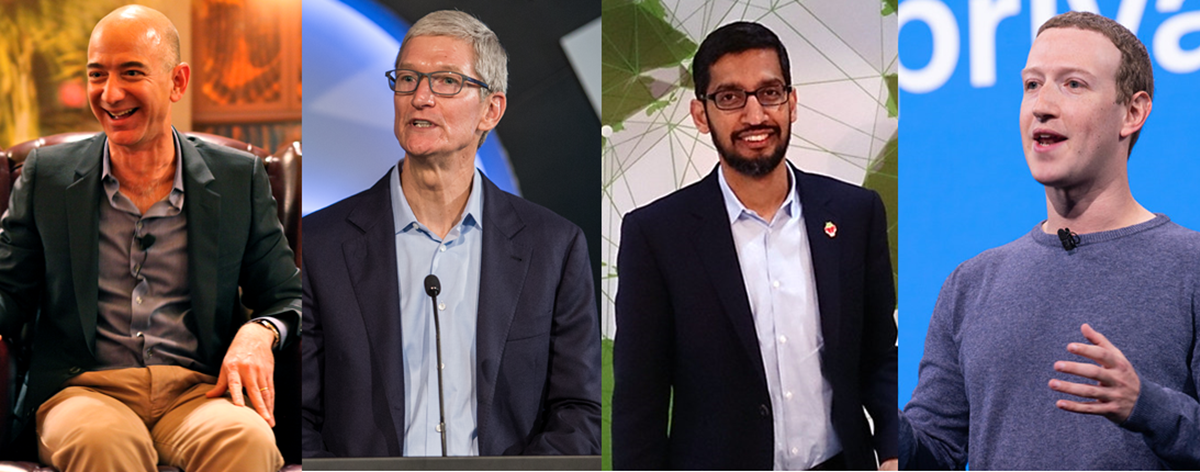If you were accused of breaking the law, who would you trust more to hear you out, a court of law or Congress?
In late July, the House Judiciary Committee’s Antitrust Subcommittee held a hearing to study the market power of online platforms. Billed as a bipartisan review of Big Tech, the witnesses included Facebook CEO Mark Zuckerberg, Amazon CEO Jeff Bezos, Apple CEO Tim Cook, and Google CEO Sundar Pichai.
Unfortunately, it looks like the Subcommittee reached its verdict before holding the trial. Even before the hearing, Chairmen Jerry Nadler (D-NY) and David Cicilline (D-RI) had concluded that these companies are “too big,” that they “cannot be allowed to exist in society,” and that Congress will “have to think long and hard about how we could, in a congressional enactment, actually break up a company.”
The hearing itself painted a more nuanced picture, where each company defended its business practices and benefits for consumers. Each company illustrated both how they face robust competition in their various market segments and also have created new avenues for smaller businesses to sell their products. And, they pointed to the recent growth of Zoom, Spotify, Snapchat, and TikTok to prove that innovative companies still have a chance to compete with the big dogs.
In addition to prejudging the outcome themselves, the House majority may have stacked the hearing against Big Tech. As the hearing shaped up, the majority’s committee staffers contacted lawyers from two of the tech companies to request a call to discuss the hearing’s format. Initially, they included minority staff, per normal practice.
An hour later, however, the majority staff reversed course and told their Republican counterparts that they had sent out the relevant scheduling emails prematurely, and to disregard the request for a call. Yet the calls went on as originally planned. Worse, majority staff appears to have claimed to speak on behalf of the minority and, according to some, may even have misrepresented their position on critical points about how the hearing would be conducted.
Of course, when you’ve already made up your mind, the process doesn’t matter. As Chairman Cicilline stated before the hearing, “there is a real understanding and expectation that we’re going to do something about this as a Congress. The American people are expecting us to.”
Despite the statements of Chairmen Nadler and Cicilline, the real “solution” rests in the court system. As part of its review, the Subcommittee surveyed numerous antitrust experts from across the ideological spectrum. Most experts opposed substantive changes to the antitrust laws. They explained that law enforcement agencies have sufficient tools to tackle anticompetitive conduct and that statutory changes could create legal uncertainty and ultimately damage the economy.
In particular, most scholars, including senior enforcement officials from both Republican and Democratic administrations, continue to support the principle that antitrust law should focus on consumer welfare, rather than political concerns or the outdated idea that “big is bad.” To abandon that touchstone would invite chaos.
Both the Department of Justice and the Federal Trade Commission, as well as state attorneys general of both parties, are already thoroughly reviewing the conduct of these and other technology companies. If they pursue lawsuits, the technology companies will have their day in court. That process will be fair and impartial, insulated from political pressure. It also will determine whether these companies are complying with the antitrust laws—and reveal whether changes are needed.

